KAGAMUGA RESIDENTIAL DEVELOPMENT
Papua New Guinea Future Footprints Project


‘NOTHING HAPPENS WITHOUT THE PLANE. DEVELOPMENT DOESN’T HAPPEN WITHOUT THE PLANE.’



‘NOTHING HAPPENS WITHOUT THE PLANE. DEVELOPMENT DOESN’T HAPPEN WITHOUT THE PLANE.’
Organisations around the world are working tirelessly to improve the lives of the poorest and most vulnerable communities. The highest rates of disability, malaria, maternal mortality – and those most lacking in healthcare, education, and equality – are frequently located in the hardest-to-reach areas.
That is why MAF has been serving isolated communities since 1945.
If hope could be likened to light shining in the darkness, then we have come a long way from the single flickering candle of a lone aircraft flying across the deserts of Sudan in 1950.
Thanks to the generosity of our supporters, the light has continued to grow and today MAF is the largest humanitarian air operator in world. However, despite the efforts of thousands of aid agencies, the need now is greater than ever.
That is why we are seeking to build our capacity to ensure that we continue to enable the vital work of the partners we fly – shining hope ever further into the remotest and most isolated areas.


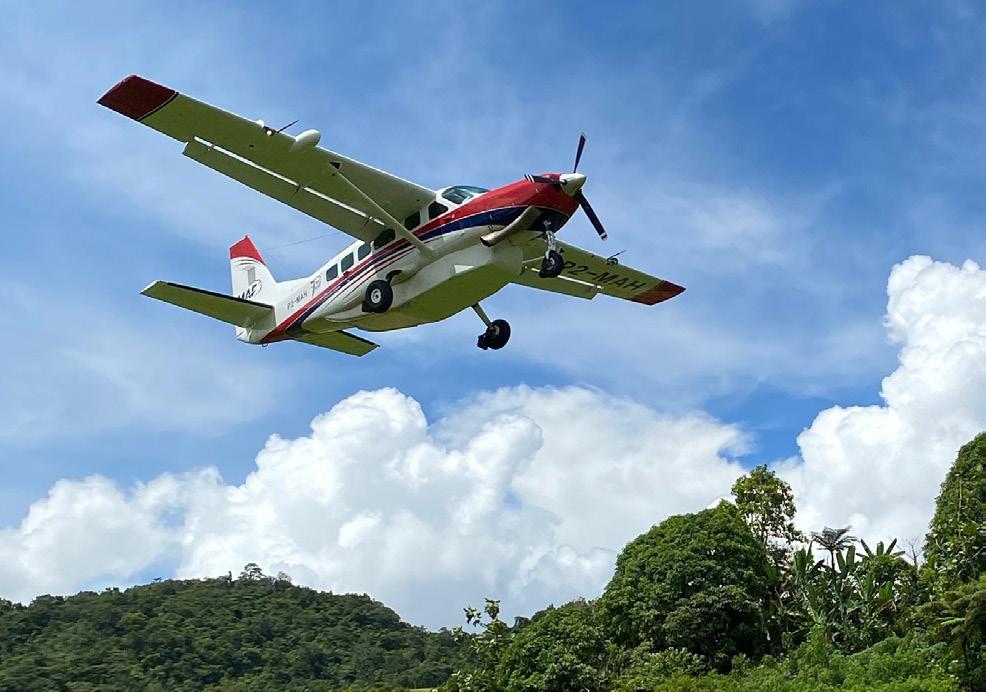
To enable MAF to fulfil its passion to deliver humanitarian help and Christian hope where they are most needed, we are seeking to grow our impact by:
• Expanding our future footprint in the nations in which we operate
• Ensuring that our aircraft continue to operate to the highest safety standards and reliability
• Investing in the training and development of national and international staff
The project outlined in this document reflect MAF’s commitment to the isolated communities that we seek to serve.
NOW
5
‘As we embark on this great collective journey, we pledge that no one will be left behind. Recognising that the dignity of the human person is fundamental, we wish to see the goals and targets met for all nations and peoples and for all segments of society. And we will endeavour to reach the furthest behind first.’
UN 2030 Agenda for Sustainable Development
Since 1951, MAF’s flights have served the most remote communities of Papua New Guinea (PNG) by transporting teachers, medics, vital medicines, and essential cargo to build and equip schools and hospitals. A network of over 200 remote communities and hundreds of partner organisations rely on our aircraft as a daily lifeline. Why? Because a 40-minute flight can save over 65 hours of dangerous trekking through dense and mountainous jungles; that’s more than two and a half days’ non-stop walking. Today, MAF’s planes are needed more than ever. We are a lifeline, not a luxury.
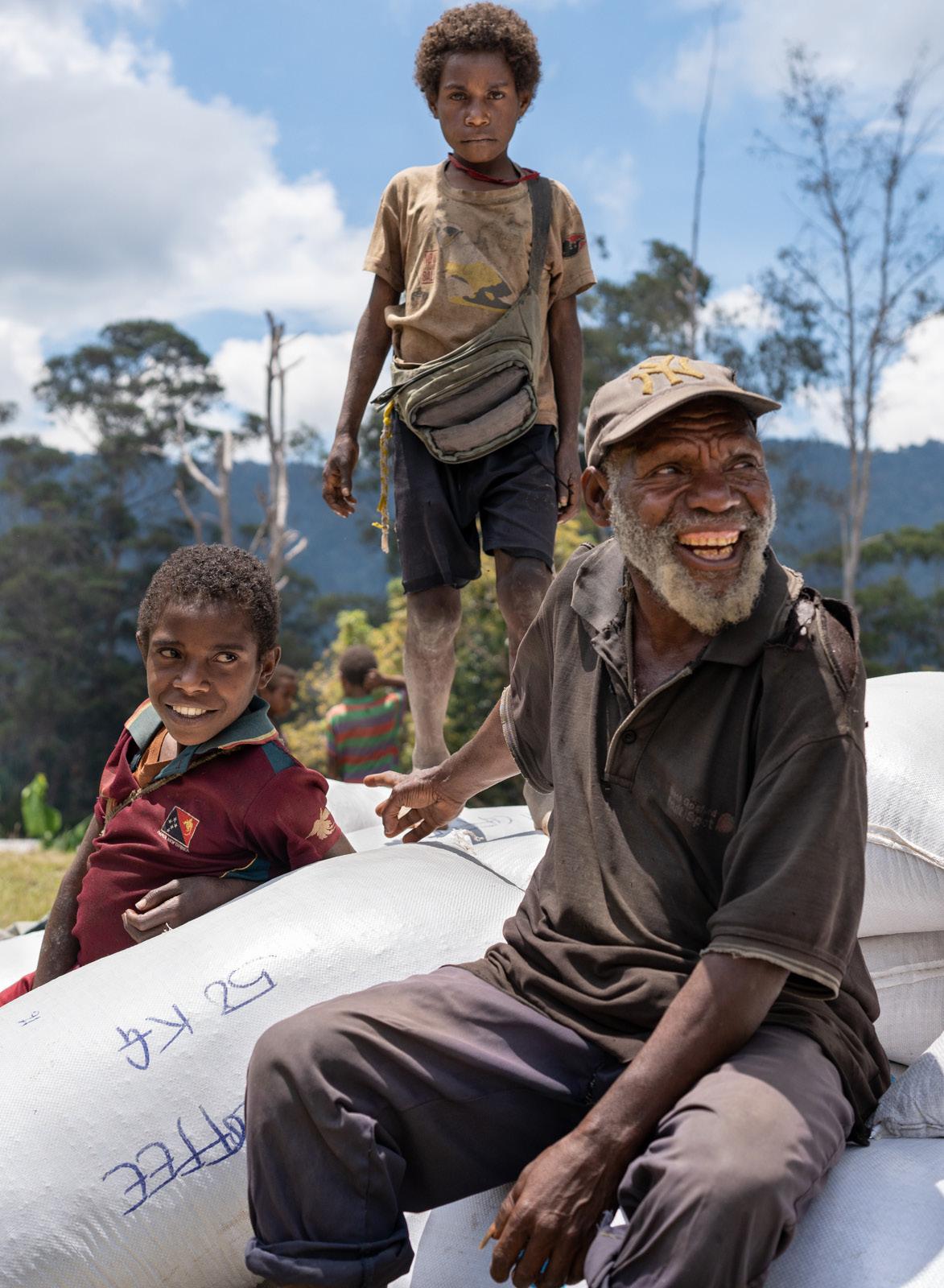
of Papua New Guinea’s population is rural of PNG’s
of rural inhabitants do not have access to reliable transportation Maternal death is 20x higher in PNG than the UK and eight times higher than the East Asia/Pacific Region average
fifth birthday as compared to urban children
MAF PNG’s recent fleet transition to a single aircraft type, the Cessna 208 Caravan, has brought significant efficiency benefits in areas such as pilot training, maintenance and fuelling procedures. But with the demand on MAF’s services in PNG ever increasing, one of the biggest challenges remains the availability of pilots. At any one time, 25% of aircraft non-availability is related to pilot shortages.

Living overseas in remote regions of developing countries is an unusual life, limiting MAF’s recruitment pool in a sector with a shortage of qualified personnel. So, when a pilot, engineer, or other essential staff and their families decide to accept a post with MAF and move overseas, ensuring that there is suitable housing available is a necessity.
That’s why MAF is building foundations for the future, in order to ensure that our life-saving flights can continue to meet the physical and strategic needs of the partners which rely on us every day.
MAF PNG Country Director, Todd Aebischer, is clear that the provision of suitable housing is a non-negotiable factor when recruiting operational missionary staff.
9
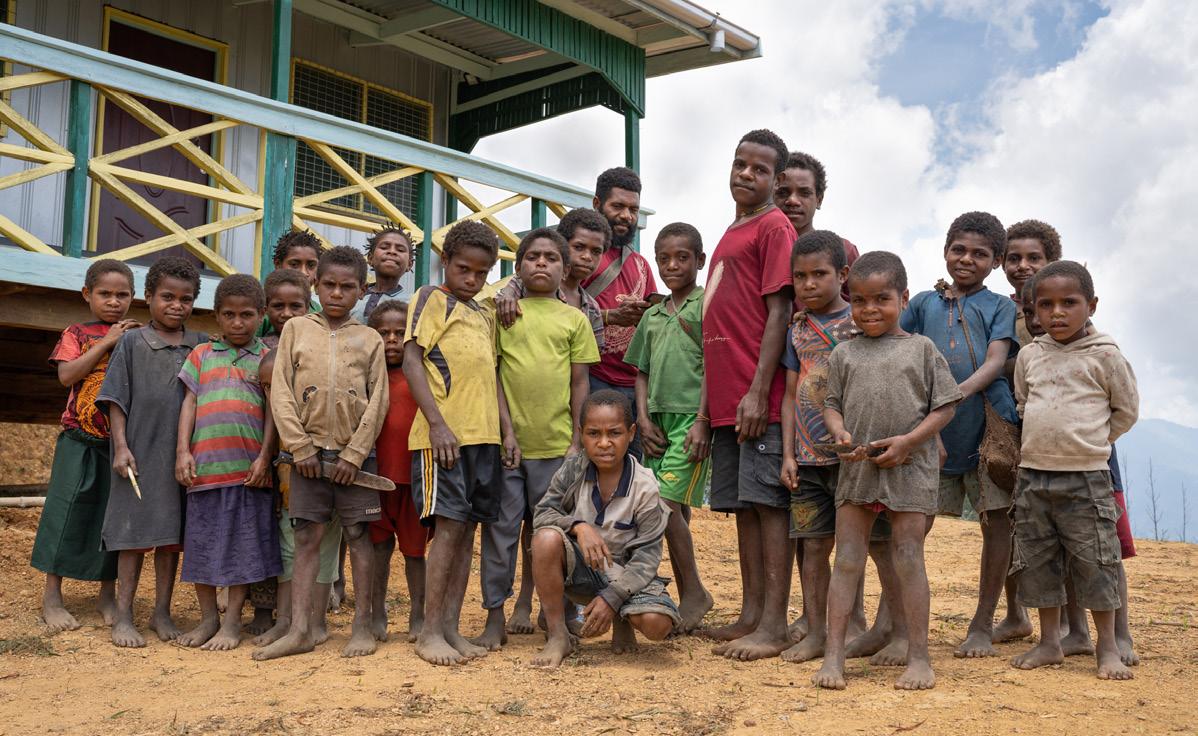
25%
‘There is so much work and need in PNG. We are seeing an increase in our operational demand, and this - coupled with the efficiency benefits following our recent fleet transition - has meant that we could fly every day in theory. But we need the pilots, engineers, and other vital staff. If we had the staff, we need a home for them and their families. Without the homes, there will be no pilots or engineers - and without them, the need in PNG will not be met. We need houses.’
MAF PNG staff have lived at Kagamuga since the 1970s when MAF moved its headquarters from the coastal town of Wewak to the Western Highlands Province. Kagamuga is a small residential community, perfectly situated surrounding Mount Hagan airport –MAF’s main hangar and base.
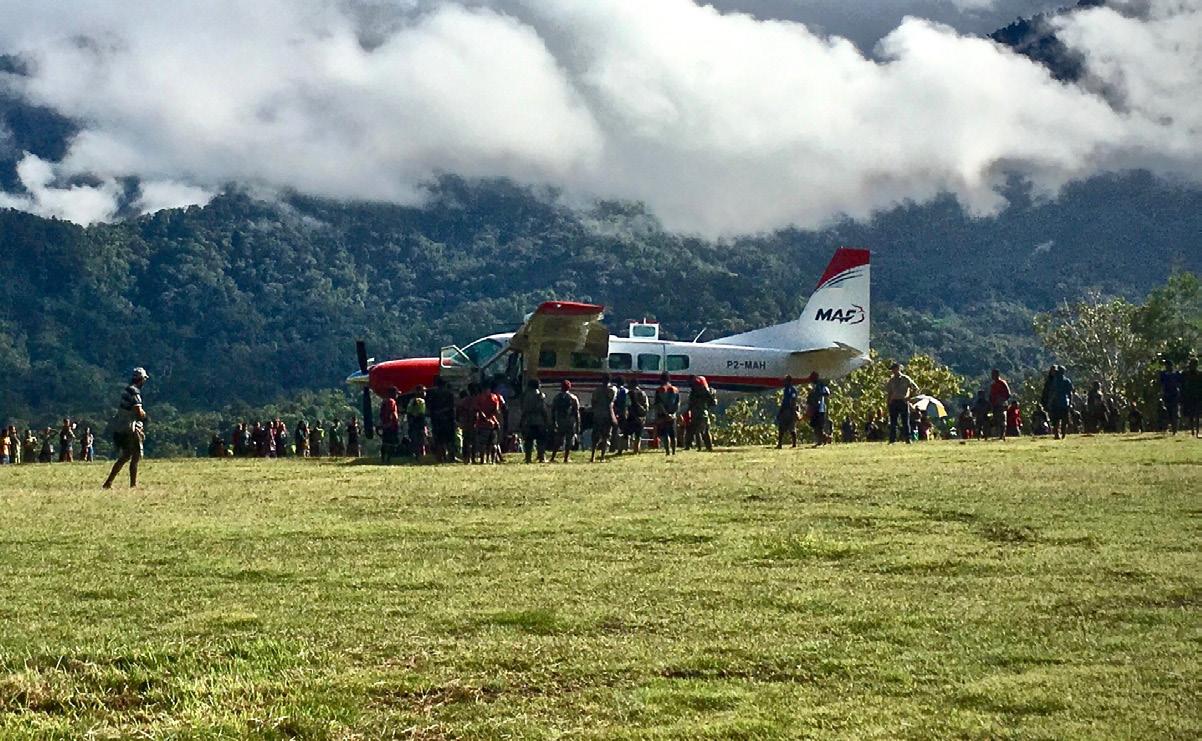
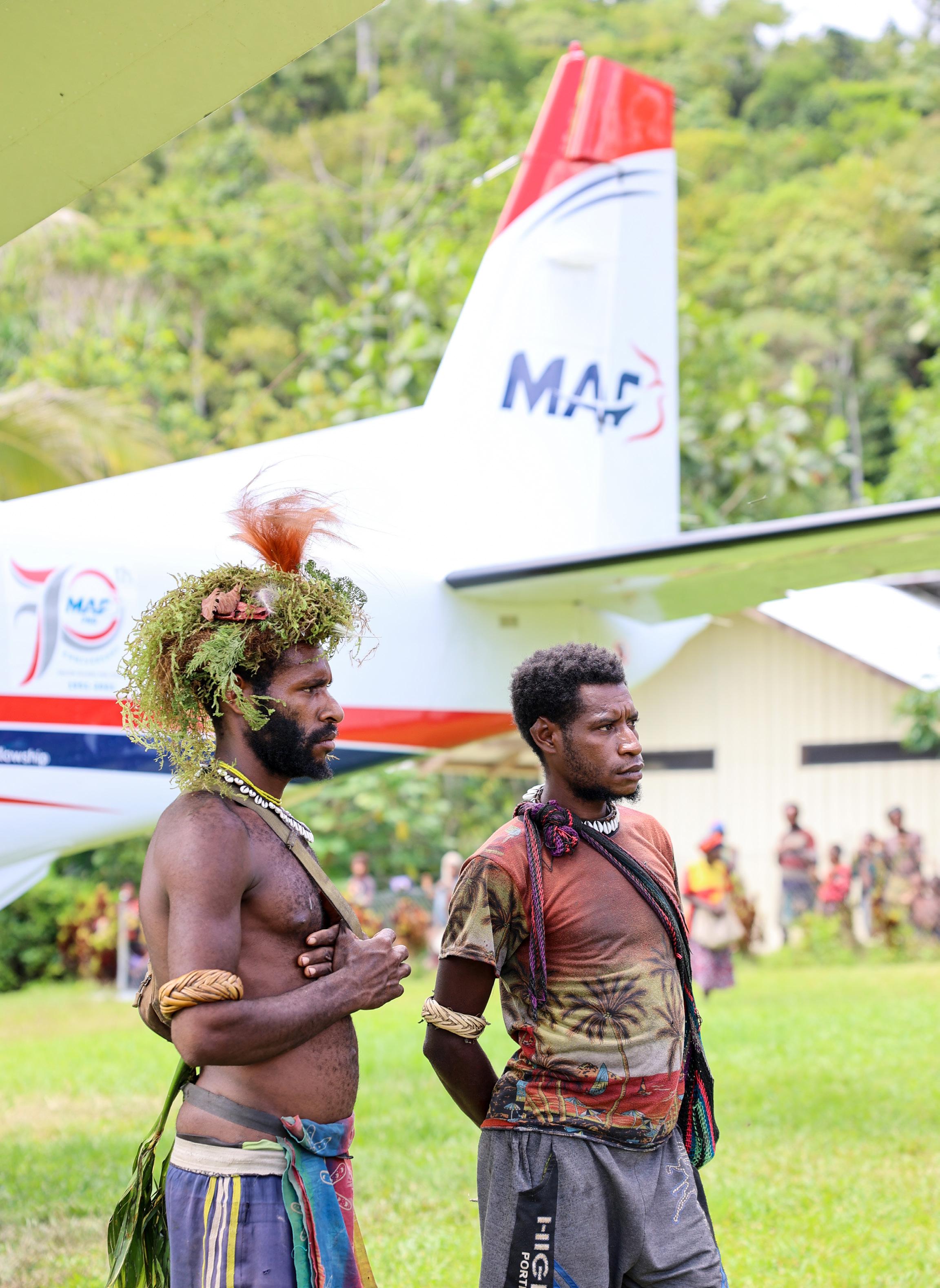
Housing is a considerable factor when people decide to move across the world. Living overseas in new and unfamiliar places, often with young families, presents additional challenges to routine, comfort and security. That’s why a well-built, secure, and comfortable home provides MAF staff and families with a safe haven in which to be restored, refreshed, and prepared for the day ahead.
The existing housing arrangement for PNG staff is no longer fit for purpose. Some property is in need of significant repair whilst other existing owned and leased houses are fully occupied. As demand for MAF’s services in PNG continues to increase, so does the need for suitable housing to accommodate current and future team vacancies, allowing for growth in capacity and providing medium and short-term accommodation for visiting relief pilots and other essential staff.
‘When living overseas, in a country that has so much need, the house you live in can become a sanctuary – the place where you are restored for the work we are here to do.’
Two three-bedroom family houses that were old, in need of significant refurbishment and uneconomical to repair have recently been demolished, providing space for two new double-storey buildings to be constructed, identified as Block 4 and Block 8.
The buildings have been designed by MAF team members David Moore and Alan Hone, who both have specialist experience in building design and construction, along with Rhodes Projects*, who are prefabricated building experts in PNG with a wellestablished relationship with MAF.
In addition to providing the prefabricated structure, Rhodes will also manufacture and supply the kitchens, benchtops, bathrooms, wardrobes, and desks, whilst soft furnishings will be purchased and installed by MAF.
Block 4 will be a six-plex townhouse styled building with two-bedroom homes for singles, couples, or families with one child.
Block 8 will be a multi-function facility with 12 motel style ensuite units that are fully configurable to accommodate larger families in adjacent units. This block will be designated for short-term stays,
visiting training pilots, conference accommodation, hosting of functions and general-purpose meeting, lounge, kitchen, and laundry facilities.
MAF is committed to managing our environmental impact as part of our integral biblical mandate to care for creation. We seek to act as wise stewards and mitigate our impact on the environment as we pursue our mission of bringing help, hope and healing through aviation.
MAF has significant experience in the supply and installation of solar power systems through our MAF Technology Services team, whose work includes providing solar energy solutions for rural clinics throughout PNG. The team have designed an appropriate system to be installed across the new houses as well as on existing buildings at Kagamuga.
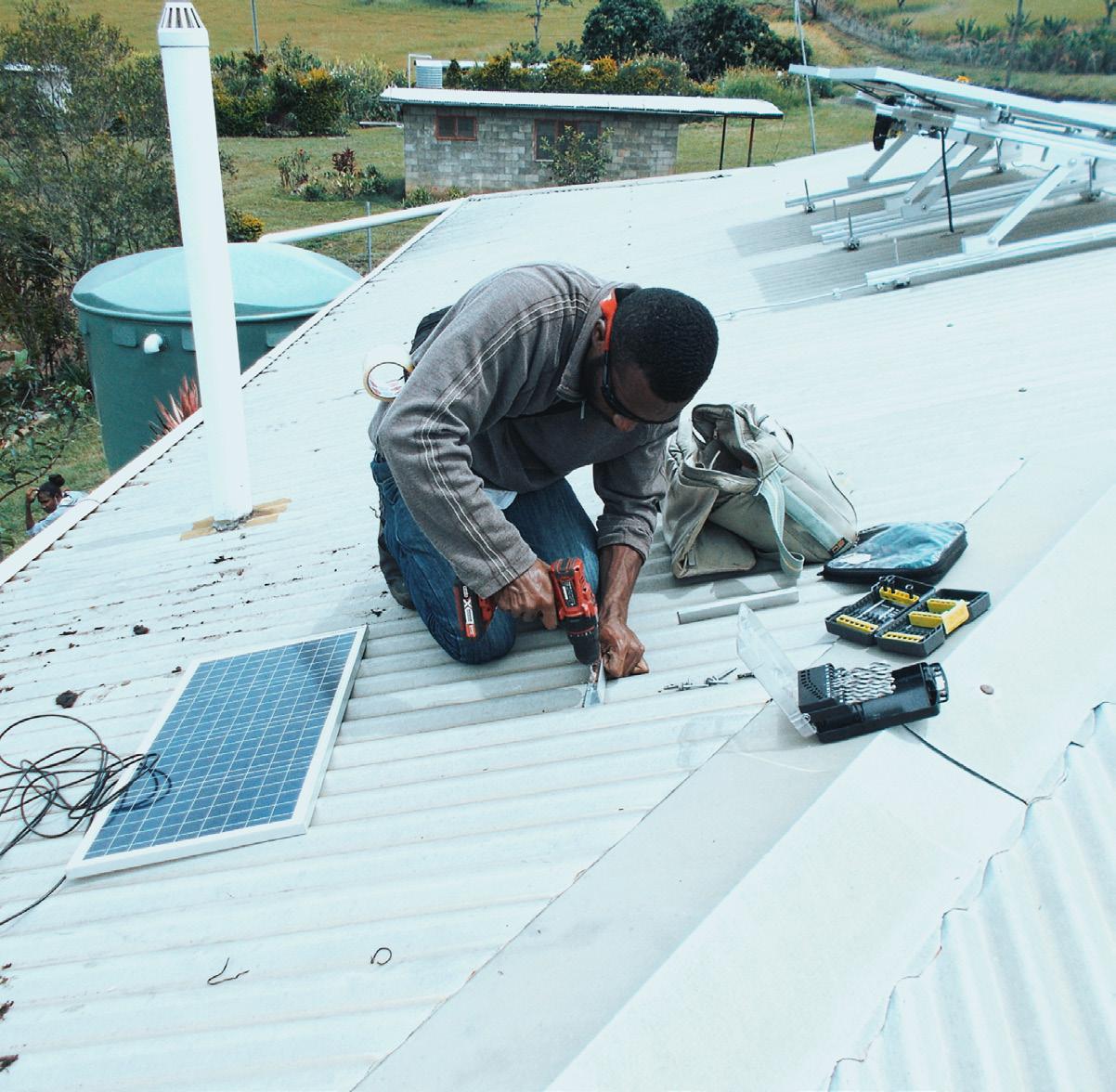
Green spaces will also be re-developed to create important areas for recreation including ball sports, such as volleyball and other games.
When developing The Future Footprint Project (FFP), MAF carefully considered its vision, mission and values, in addition to the anticipated future trends within recruitment and the needs of the communities we are here to serve.
This resulting housing plan at Kagamuga enables MAF to best meet our objectives. It is anticipated that as a result of the FFP, MAF will see:
• Increased flight services to isolated communities presently not served or underserved.
• Improved communication, training and staff wellbeing. The development at Kagamuga will equip MAF with the resources to host small conferences and training events, including provision of accommodation for international or other base staff.

• Increased nation building in PNG. MAF has an encouraging relationship with the PNG Government’s National Identification and Unification Initiative, which sees MAF as a vital link to improving the training of national staff and development of local leaders.
Dr. Rebecca Williams, a PNG national, examines a child patient in the remote village of Malaumanda during an aerial health patrol, facilitated by MAF flights. In a one-year period, our aircraft enable more than 4,000 people to receive essential healthcare treatment in rural PNG.
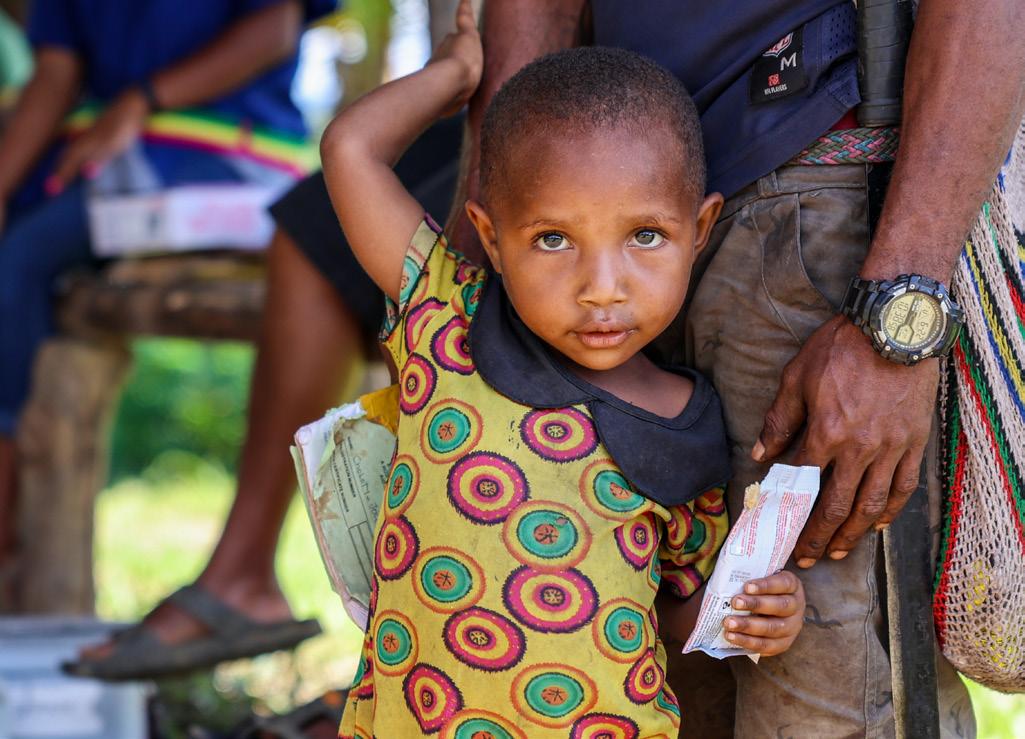
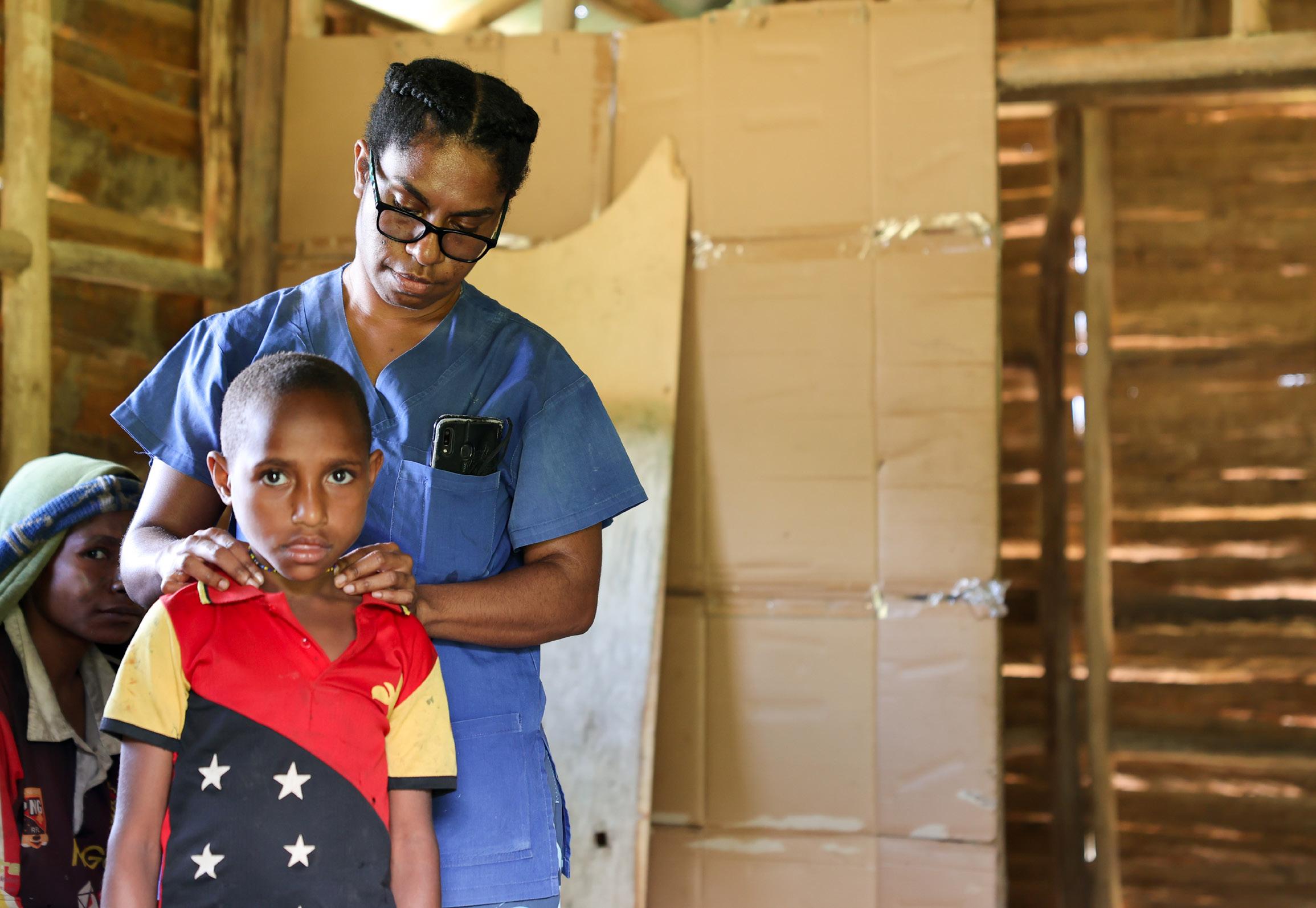
The PNG Future Footprint Project is an exciting opportunity to help shape MAF’s operations to sustain our mission for the next generation. Your Support will play a vital part in positioning MAF to meet the growing needs in Papua New Guinea for decades to come. Please ask us how to partner with MAF in this exciting and transformational project.
‘When I first came to Kompiam Hospital, it was walking patrols. We had a few sites that were within one or two days’ walking distance. Then MAF started flying patrols which enables us to see areas much further away. Foot patrols obviously take more time away from the hospital and we can’t cover anything that might be going on; with flying patrols, we see who we need to see and then come back, so that’s a big advantage to see more people in our community.’
Operating in PNG since 1951, MAF transports teachers, medics, essential medicines as well as cargo to build and equip schools and hospitals. From a headquarters at Mount Hagen, MAF operates a single-type fleet of 10 Cessna 208 from multiple bases across PNG. In total, MAF’s network serves over 200 communities. In most cases, MAF flights take only hours or even minutes to reach destinations that would require days to reach by land; journeys which take days of trekking mountains covered in dense jungle, manoeuvring rain-dependent waterways or conquering swamps.
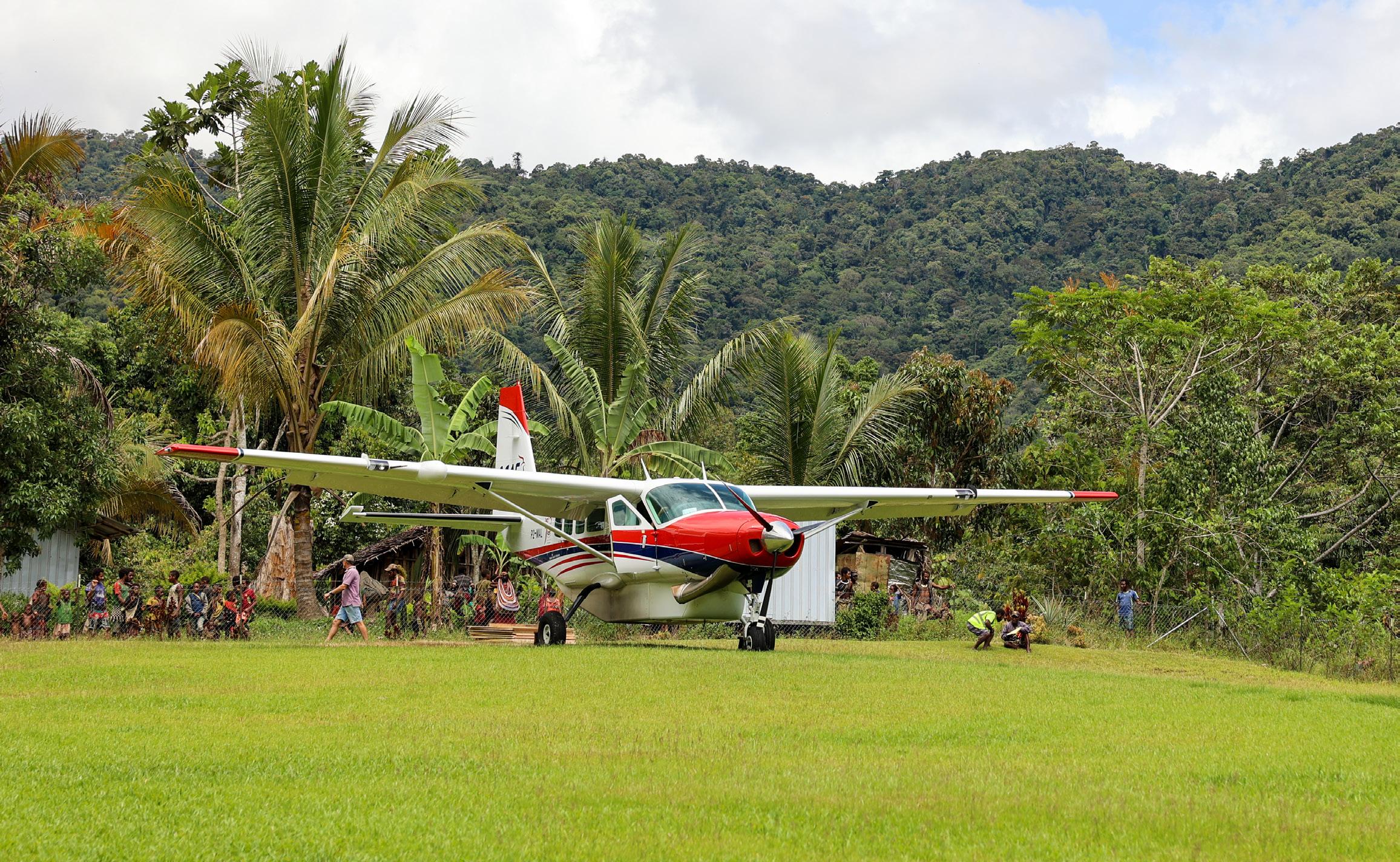
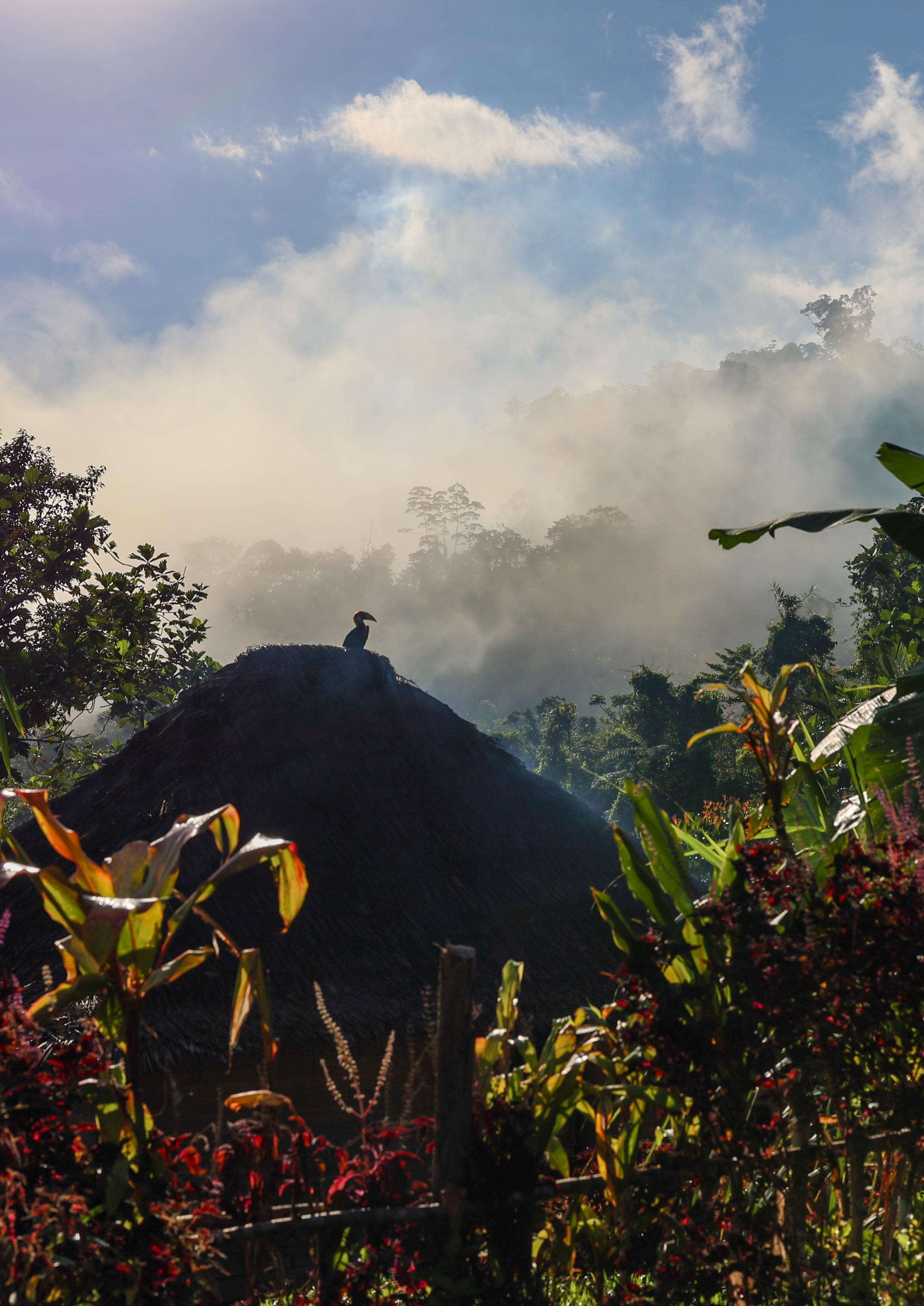
Complementing the provision of vital air transport, MAF Technology Services further supports isolated communities.
This includes equipping hospital staff with IT skills, making solar energy solutions available for rural clinics to store vaccines and coordinating a growing network of outstation High-Frequency radio transceivers across the country. These enable remote communities to coordinate supply deliveries and arrange medical evacuations (med-evacs) of critically ill patients.
MAF is recognised by government, international aid agencies and national organisations as providing a vital, safe service. In addition, NGOs which would otherwise be reluctant to deploy staff and their families to isolated communities do so confidently in the knowledge that MAF is on hand to provide swift evacuation in the event of unrest or a medical emergency.